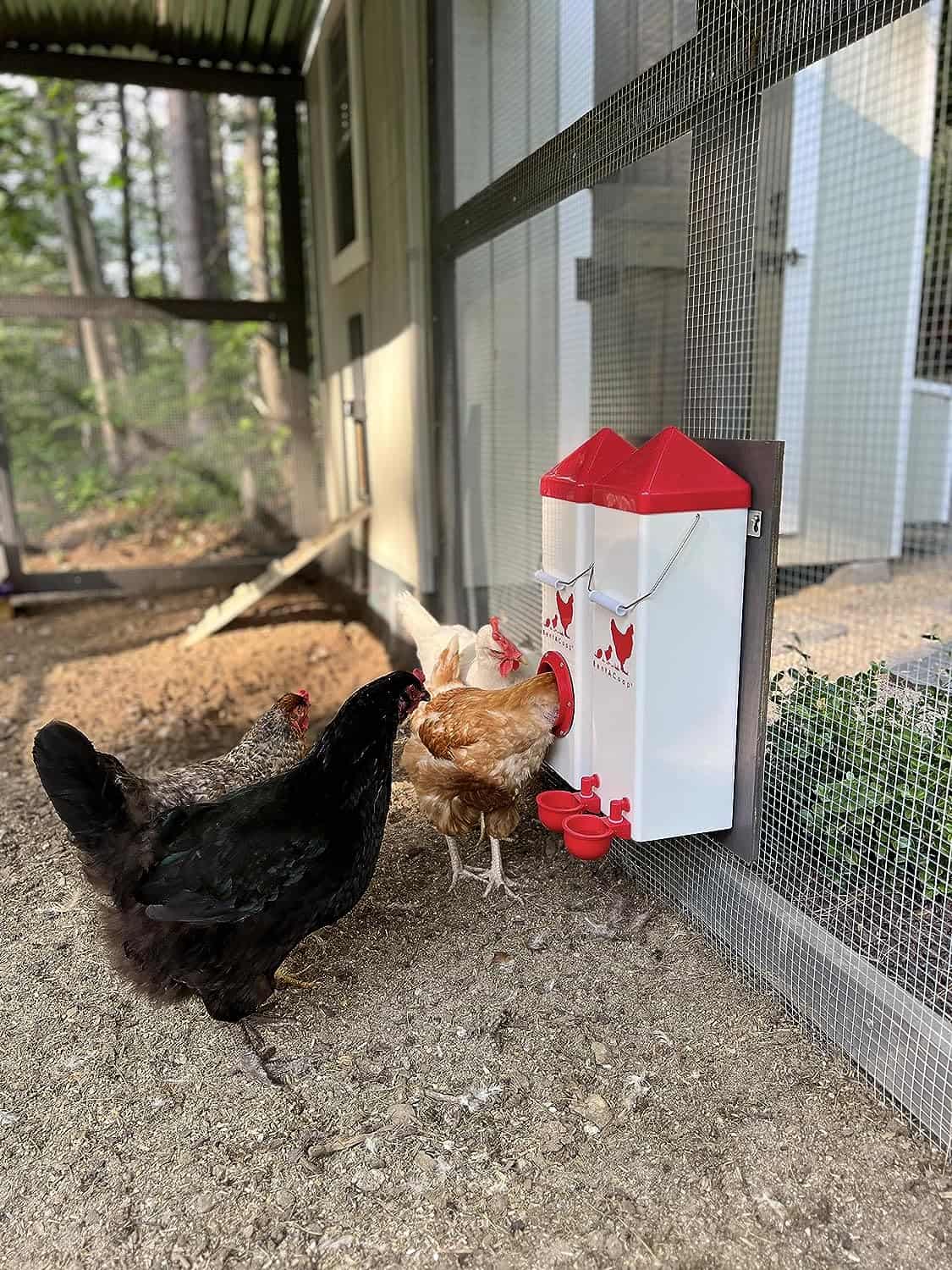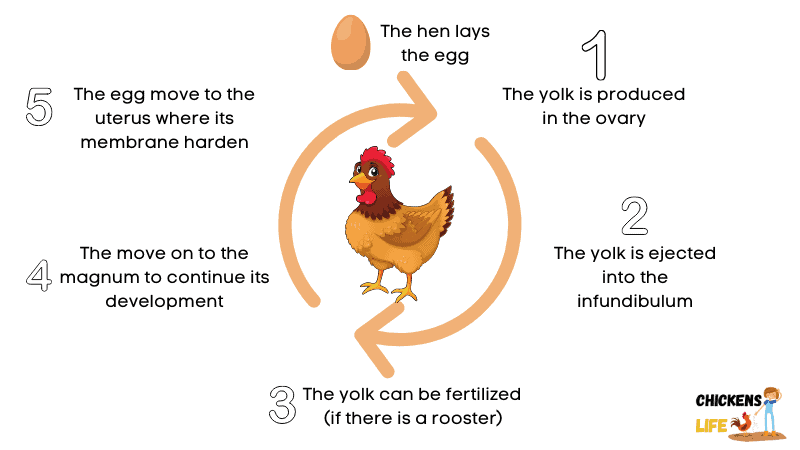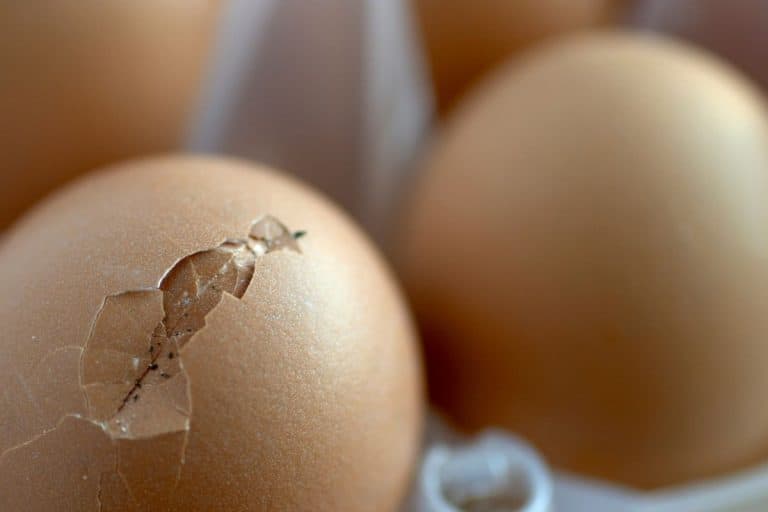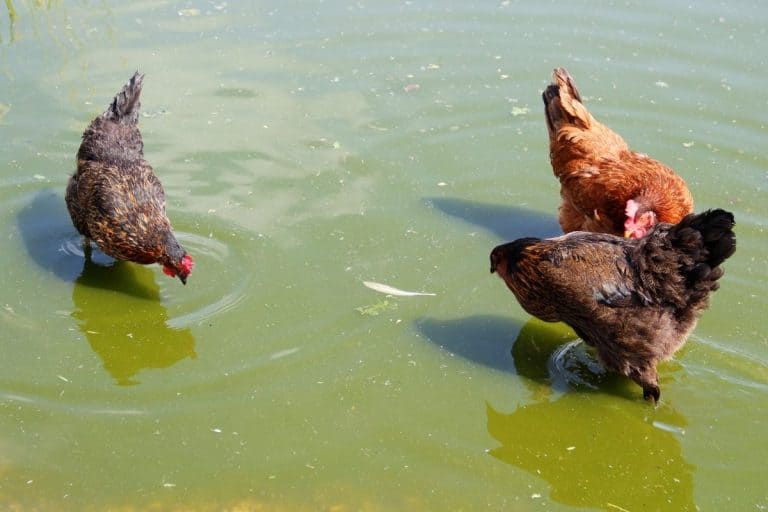Do Chickens Lay Eggs At Night?
Do you know that the dark period greatly influences the behavior, health, and egg laying in chickens? Many chicken owners and farmers don’t know exactly when chickens lay their eggs because it is a very private moment for chickens.
Chickens don’t lay their eggs during the night. Chickens are not nocturnal creatures, so they are not active during the dark. They lay eggs in the morning, usually within 6 hours of sunrise. Egg laying is triggered in the body of a hen as soon as the sun rises.
You must have heard the riddle “which came first the egg or the chicken”, science may not have an exact answer to this riddle, but it definitely has the answer about “will chicken lay their eggs at night”, so read on to know how and when hens actually lay their eggs.
But before you dive into this topic, did you know I've got a page packed with my go-to chicken stuff? From the best feed to handy tools, it's all there. Don't you want the best for your flock? Check it out right here.
Do Chickens Lay Eggs At Night: Vet Guide
Normally, chickens don’t lay eggs at nighttime. Chickens are diurnal, meaning that they are only active during the daylight hours. During night, chickens roost in their nests and prepare themselves for the next day.
Like humans chickens also sleep during the night time and those who may not sleep will close their eyes and rest in their desired spots. Chickens will feed, forage, play, and lay eggs during the daytime under normal circumstances.

Many new chicken owners believe that chickens lay eggs during the night and they sneak up on them to see how they do it. But this is not recommended because chickens are very sensitive animals and any disturbance during their rest period can result in stress which can lead to poor egg production and is also annoying for the chickens. So it is best to leave them alone at night and let nature do its business.
Wait, I have some recommendations for you!
Before you go any further, I want you to take a look at some of the recommendations I've handpicked for you. I think these are essential items you should have for your chickens flock. You can check them out and buy them directly from Amazon.
 |  |  |  |
| Essential accessory for your coop | No more tripping over hoses! | Predator protection made easy | Comfort + style is possible |
Is It Normal For Chickens To Lay Eggs During The Night?
Generally, hens shouldn’t lay eggs at night but if your hens are doing it from time to time there is some problem with their health. The reproductive system is very sensitive in hens and is mainly governed by hormones and light.
Stress, deficiencies, and diseases can alter the normal hormone levels in the body and upset the egg-laying cycle.
Due to these health problems egg yolk may release early and the formation of the egg starts in the body at the wrong time. This causes the hen to lay eggs usually at night.
The eggs that are laid at night due to health issues are mostly abnormal. They will have a thin shell or even no shell at all. They may be misshapen and have watery albumen or discolored yolk.
With the proper diagnosis of the problem and by providing your chickens with an ideal environment, feed, and supplementation of vitamins and minerals you can lower the incidence of this problem.
What Time Do Chickens Usually Lay Their Eggs?
Hens have an egg cycle of about 25 to 30 hours depending upon the available light and breed of chicken but on average they lay an egg every 26 hours. Typically, hens will lay in about 6 hours after sunrise or during the early noon.
But sometimes it can take about 9 to 10 hours after sunrise usually around 3 pm for a hen to lay an egg and this is normal if it happens rarely (once or thrice in a month) but if this delay is occurring regularly, there may be a health problem with the hen.
If everything is well managed and hens are well-fed, you can collect the eggs in the morning, usually around 8 am to 10 am. However, there are fluctuations in the egg laying time depending on where you live, which season is going on, the health of the hens, and the nutrition of hens.
In commercial layer farms, eggs are collected three times a day because of the large number of hens and each with different laying times, but the biggest batch of eggs is usually the first one which is collected in the morning.
Does Egg Formation Process Continue At Night?
Yes, the egg formation process continues in the body of a hen during the nighttime and it completes by sunrise. The egg formation process from start to laying takes more than 24 hours to complete.

The process of egg laying starts with ovulation which is the release of egg yolk from the ovary and it mostly occurs after 1 hour of laying an egg. Then it takes about 3 hours for albumen (egg white) to form around the yolk.
After this shell membrane is formed in an hour which gives shape to the egg and holds the egg white and yolk in place. The longest time is required for shell formation usually around 20 hours and this happens during the night. Next, the hen will lay the egg, one egg per day on most occasions.
Some hens can delay the process of ovulation in their body this is the reason why many skip one day of laying and will lay an egg one day after another.
Do Chickens Lay Eggs At The Same Time Every Day?
There is a possibility that hens will lay eggs at the same time every day. Most hens don’t lay eggs every day and will skip a day in between consecutive layings. Even if they lay daily, the timing of laying may or may not be the same each day.
Sometimes a hen will lay in the morning for a week and then the timing of laying may change to early noon for the next week.
The reproductive system in hens is very susceptible and any frequent change in their environment, body, and nutrition can affect their egg-laying cycle hence altering the time of laying. Diseases and deficiencies can also change the time of laying for example calcium deficiency in hens can delay the time of laying.
Which Step Of Egg Formation Occurs At Night In Hens?
The formation of the eggshell is the longest step in egg formation in hens which takes about 20 hours to complete and continues during the night. This step is very demanding for the body of a hen because most of the blood flow is directed toward the reproductive system during shell formation.
The formation of eggshells occurs in the shell gland of a hen which is a part of its reproductive system. During its formation, there are continuous contractions in the shell gland so that calcium is equally deposited on all sides of the shell and proper egg shape is achieved.
Most of the blood flow in the body of the hen is directed towards the shell gland during this time to provide a constant flow of calcium. This takes a heavy toll on the body and this is the reason why hens sleep and rest during the night.
Any disturbance to the hens during this time can spike their stress levels and disturb the eggshell formation and delay laying. Any maintenance task of the chicken coop or shed should be performed during the daytime so chickens can rest at night without any nuisance.
Which Chicken Breeds Lay Eggs During The Night?
There are no chicken breeds that lay eggs during the night under normal circumstances. However, the time of egg laying can vary from breed to breed. Usually, the hens that lay brown eggs are the earliest layers and will lay early in the morning.
While hens that lay white shelled eggs deliver them late in the day mostly around noon. Broiler breeders lay their eggs before dawn. Hybrid hens are most persistent with their laying time and will lay at the same time every day.
Related: What Are The Most Common Breeds Of Chickens And Their Uses?
Does Darkness Help Chickens Lay Eggs?
Darkness plays an indirect role in helping hens lay their eggs. Chickens need about 6 to 8 hours of darkness, so they can sleep and rest, thus boosting their egg-laying ability.
For example, If you turn on the light in the chicken coop at night, hens will consider it daytime and will not sleep and rest. This continuous activity period without any rest will fatigue their bodies, decrease their immunity, and will raise their stress levels, leading to poor egg production.
The pineal gland in a hen’s body senses light and releases hormones like melatonin and serotonin. These hormones are necessary to maintain the circadian rhythm of hens. Hens that are provided with 12 to 16 hours of sunlight will produce eggs at their maximum capacity.
The dark period (6-8 hours) is a must for hens so they can relax their bodies and their reproductive system can work at its utmost ability to make proper egg shells.
Do Long Nights Help Hens Lay More Eggs?
No, too much darkness for more than 8 hours is not beneficial for egg production in chickens. This is the reason why hens lay fewer eggs in winter and more in summer because summer nights are short.
In countries where winters are long and dark, a light source is necessary for the chicken coop so an adequate level of hormones can be secreted in the body of the hens, hence boosting their egg production.
If daylight is only available for 8 hours, you should turn on the light in the chicken coop for an additional 6-8 hours so the hens can receive desired light quantity.
Related: Can You Leave the Chicken Coop Door Open Overnight?






